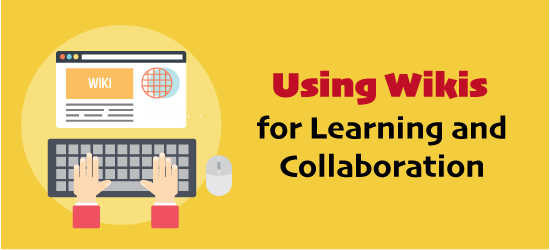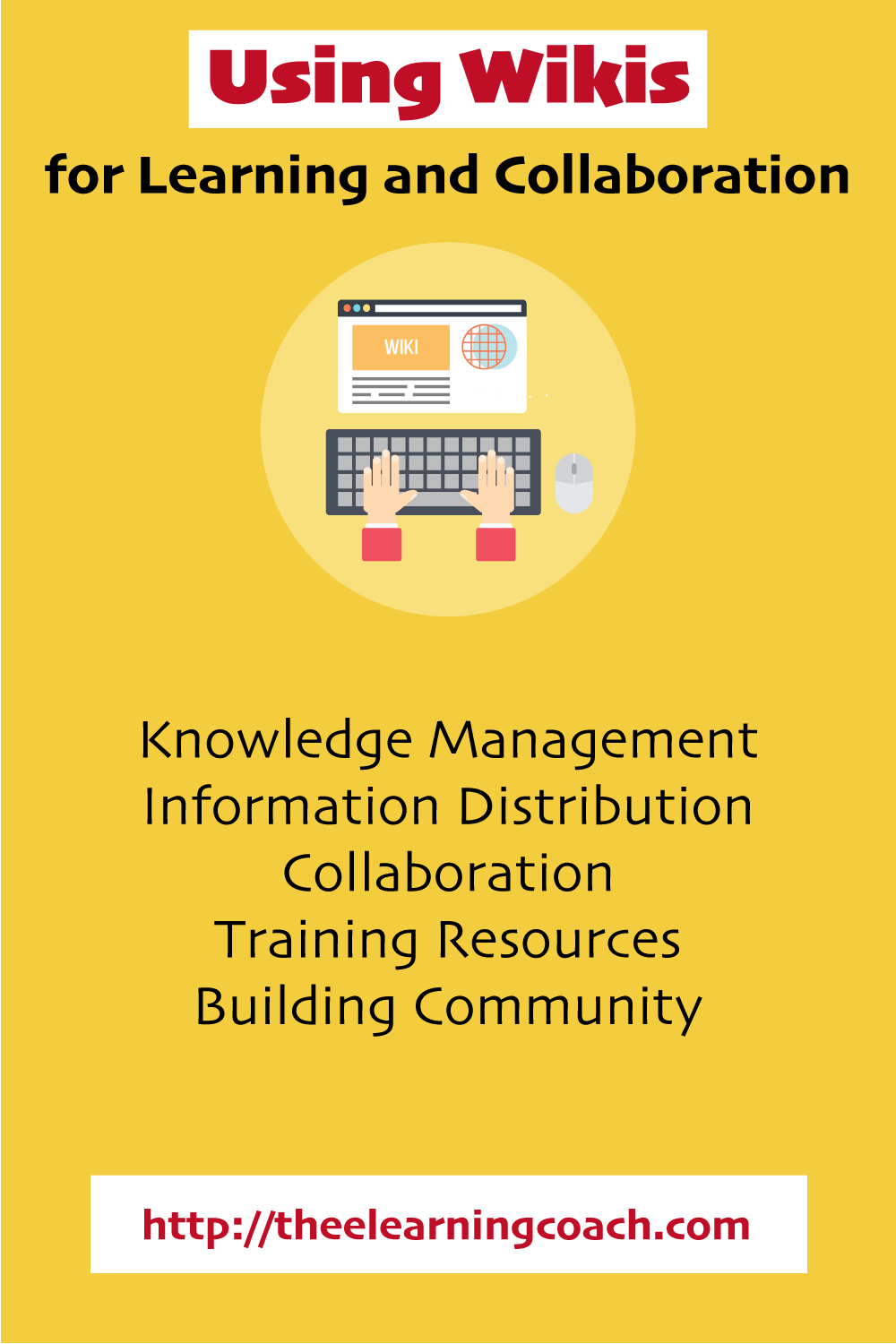
Years ago, wiki software had a surge in popularity because of its capability to collaboratively organize and structure content. In today’s enterprise, can wiki software still be relevant to Learning and Development? Depending on your requirements, it can be.
The right wiki software may be used to distribute information, share knowledge, facilitate user-generated content, develop a collaborative culture and provide support in the workflow—significant aspects of workplace learning.
Wiki Defined
A wiki is a website that is collaboratively created by multiple users. It can also be thought of as a collaborative content management system (CMS) for collecting and organizing media that is created and revised by its users.
As you know, the most well-known example is Wikipedia. Wikis are a way to grow a knowledge base around a particular content area, be it best practices in a particular field or how to use a specific piece of software. Some organizations allow any registered user to contribute; others limit contributors to a particular department or group.
Features
A hallmark of collaborative work is that it improves as more people use it and this approach underlies wiki-based learning. It is based on the idea that within any enterprise, a great deal of knowledge exists among the members. Sharing this knowledge and information can raise the organization’s intelligence level, be it a corporation, association or educational institution.
An important feature of a wiki is that information should be easily accessible. For example, suppose an organization rolls out new software that novice users are finding difficult to use. Power users of that software could contribute tips and guidance on various software procedures through the wiki. The goal would be for novice users to access the wiki on their organization’s intranet, search for the task and quickly find the answer.
Possible Uses
Knowledge Management and Information Distribution. Wikis may be used when an organization needs to collect, organize and distribute information. This can reduce the need for building courses, as employees access the information they need.
- Frequently Asked Questions
- Knowledge base for specific topics
- Technical help for customers and employees
- Archiving organizational policies and procedures for easy accessibility
Collaboration. Learning often arises out of collaboration and wikis are good for this. The wiki format is ideal for sharing and getting feedback from team members. Some ways to use wikis to collaborate are:
- Finding group solutions to a problem
- Developing standards and allowing group comments
- Supporting tasks in the workflow from experts
- Creating a database of relevant stories from which others can learn
- Gathering requirements and feedback for a new product
- Showcasing projects, examples, design patterns
Training. Wikis may be used to hold all the training and informational resources in an enterprise. Some of the more modern wikis may interface with an LMS. When employees have access to the resources they need, it can reduce the time spent in formal training.
Developing Community. Wikis can potentially develop a sense of community. They typically have a history page that lists the original contributor of an article and those who have edited and made revisions. This type of open collaboration provides contributors with a sense of ownership.
Benefits of Using Wiki Software
Wikis have several features that may benefit the learning organization.
- Wikis can be private or public.
- There are free and open source platforms as well as paid versions. (See Resource links below.)
- They only require basic programming skills for installation, setup and maintenance.
- Many wiki platforms have multi-user capabilities so that contributors may create content independently of each other simultaneously.
- Wikis connect information. They may include links to relevant content inside and outside of the wiki.
- Editing is typically easy to do in a wiki and no HTML knowledge is required.
- Wikis can be applied to just about any content area.
- When they are well-planned, users find them easy to search and navigate. Wikis come with built-in search functionality.
Problems and Issues with Using Wikis
Introduction of technology, even older platforms like wikis, may affect the work culture and operations. Below are some of the most significant issues.
- Lack of familiarity. Employees may be hesitant to contribute to a wiki and may need some type of incentive until they see its value. In addition, contributors need to learn how to use the software.
- Time and effort. A wiki needs an owner or a team that takes responsibility for managing it. This means one or more people will need to dedicate time. In the end, collaborative tools can save time in improved communication and improved access to content/information.
- Decentralized management. If diverse teams use different wiki software, it can become a problem for IT. Centralized wiki management is best.
- Privacy concerns. In some organizations, executives may be concerned that proprietary information will be shared in the wiki and may discourage its use.
- Dated User Interface. Some wiki platforms look dated and do not have the modern user interface that people have become accustomed to. As you search for a platform, you will find updated wiki software.
Guidelines for Implementation
When you build a wiki community, experts suggest these guidelines to help make it a success:
- Ensure the goal of the wiki is clear, then communicate this to your organization.
- Determine who the users will be.
- Ensure there is a moderator/editor to ensure contributions fit the goal and format.
- Provide clear instructions on how to use a wiki and how to contribute.
- Promote a culture of friendly collaboration.
To read a case study of a wiki launch in a pharmaceutical company, see Case Study of a Wiki Changing an Enterprise.
Wiki Resources
Wiki Software
Below is a sampling of wiki software. There are many wiki platforms.
- Confluence: Well-known wiki software for the enterprise
- DokuWiki: Specializes in managing documentation
- EditMe: Low cost platform for business or classrooms
- Mediawiki: Free software engine used for Wikipedia
- MS Teams Wiki: If you are using MS Teams, you can create a wiki tab.
- Nuclino: A modern wiki branded as a “collective brain”
- Wiki.js: Open source wiki software
Wiki Comparison Tool
- WkiMatrix (suggested by Lisa Johnson, @Kuriousmind): Helps you find the right wiki software for your needs
Wiki Examples
Check out these public wiki examples:
- WikiHow: public wiki for how to do anything
- SAP Community Network
- Catawiki: a wiki of catalogs for collectors
- Open Street Map: creates and provides free geographic data and mapping
- Wikitionary: a multi-language dictionary
Related Books
Most books on this topic have older publication dates. Please check that they are still relevant for your needs. They may be.
- Chatfield, T. The Complete Guide to Wikis, How to Set Up, Use, and Benefit from Wikis for Teachers, Business Professionals, Families, and Friends, 2009.
- Collins, R. Leadership in a Wiki World: Leveraging Collective Knowledge To Make the Leap To Extraordinary Performance 2011.
- Collins, R. Wiki Management: A Revolutionary New Model for a Rapidly Changing and Collaborative World, 2013.
- Sandifer, S. Wikis for School Leaders: Using Technology to Improve Communication and Collaboration, 2011.


Thanks for your guidelines and insights, Bruno. Sorry for the delay in responding. I missed this.
I think an important feature of wikis are wikilinks: links made automatically on CamelCase names. It encourages 3 very dynamic behaviors :
– putting names on concepts, gradually creating abstractions and stronger semantic
– linking to page not yet written, it turns the site into an ever expanding work in progress. It’s also a call to readers to become participants and share what they know. In a learning perspective it turns learners into actors.
– neat linking in every directions, classic html links were so much harder to establish
In my eye that’s what distinguished a CMS from a wiki. It’s less clear now as many web based cms introduced this feature.